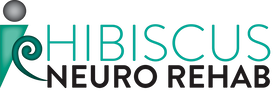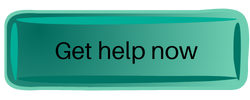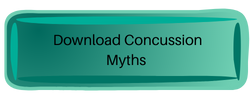What is Concussion ?
“A subtype of mild traumatic brain injury (mTBI) … a reversible neurological dysfunction caused by a direct blow to the head or indirectly through forces transmitted to the head by the neck or elsewhere on the body.”
…. It is a metabolic, physiological and microstructural injury to the brain”
What does this mean exactly?
Functional injury: refers to disruption of physiological function including ionic shifts, metabolic changes or interruption of neurotransmission
Microstructural injury: physical changes that are unidentifiable on standard access imaging such as x-ray, CT or MRI - now becoming more detectable with advanced imaging techniques such as Diffuse Tensor Imaging.
Recovery from concussion symptoms occurs for most adults within 14 days and youth and adolescents in 2-4 weeks, research is now indicating that brain healing continues over month even with resolution of symptoms, so careful management at this time is still warranted to prevent further injury during this period.
Symptoms of concussion often occur immediately but can develop over a number of hours and days. In the initial 4-6 hours post injury monitoring is encouraged to look for worsening of symptoms.
Symptoms that require urgent medical attention include:
Decreasing consciousness
Seizures
Worsening neck pain
Double vision
Severe and increasing headache
Increasing restlessness, agitation or combative behaviour
Muscle weakness, tingling, burning sensations in arms and legs
Vomiting
For those people who are experience persistent symptoms outside these timeframes - working with a team of people who are experienced in concussion will help you get back to life.
Here at Hibiscus Neuro Rehab we work with interdisciplinary teams for concussion under ACC funding and privately as required.
Early intervention has been shown to have the best course of recovery
…. It is a metabolic, physiological and microstructural injury to the brain”
What does this mean exactly?
Functional injury: refers to disruption of physiological function including ionic shifts, metabolic changes or interruption of neurotransmission
Microstructural injury: physical changes that are unidentifiable on standard access imaging such as x-ray, CT or MRI - now becoming more detectable with advanced imaging techniques such as Diffuse Tensor Imaging.
Recovery from concussion symptoms occurs for most adults within 14 days and youth and adolescents in 2-4 weeks, research is now indicating that brain healing continues over month even with resolution of symptoms, so careful management at this time is still warranted to prevent further injury during this period.
Symptoms of concussion often occur immediately but can develop over a number of hours and days. In the initial 4-6 hours post injury monitoring is encouraged to look for worsening of symptoms.
Symptoms that require urgent medical attention include:
Decreasing consciousness
Seizures
Worsening neck pain
Double vision
Severe and increasing headache
Increasing restlessness, agitation or combative behaviour
Muscle weakness, tingling, burning sensations in arms and legs
Vomiting
For those people who are experience persistent symptoms outside these timeframes - working with a team of people who are experienced in concussion will help you get back to life.
Here at Hibiscus Neuro Rehab we work with interdisciplinary teams for concussion under ACC funding and privately as required.
Early intervention has been shown to have the best course of recovery
Concussion Myths
Concussion treatment has made huge changes over the last few years and with this means that advise can be confusing and mixed especially as our understanding and research is updated here are some of the latest concussion advise and why it has been updated.
What can you do to help your Concussion recovery?
- After an initial concussion you want to avoid further injury, removing someone from sport or activities ensures that care can be provided and further injury does not occur.
- Research has shown avoiding screens for the first 48 hours can help with recovery.
- Nutrition - eating healthily by limiting processed food and sugar can help reduce the overall inflammation in brain and body.
- After the initial injury if you are still symptomatic you want to engage in activities that are not or minimally symptom provoking to allow your brain time to heal
- Prioritise sleep, sleeping is when your brain heals prioritising a good night sleep is important, sleep can be disrupted post concussion so please seek help if you are having ongoing issues
-If you are having ongoing symptoms seek help sooner rather than later.
- Research has shown avoiding screens for the first 48 hours can help with recovery.
- Nutrition - eating healthily by limiting processed food and sugar can help reduce the overall inflammation in brain and body.
- After the initial injury if you are still symptomatic you want to engage in activities that are not or minimally symptom provoking to allow your brain time to heal
- Prioritise sleep, sleeping is when your brain heals prioritising a good night sleep is important, sleep can be disrupted post concussion so please seek help if you are having ongoing issues
-If you are having ongoing symptoms seek help sooner rather than later.
What does Neuro Physiotherapy do for concussion recovery?
As Neurological Physiotherapist's we work with clients to manage their concussion needs right from the beginning of your rehab journey.
We work with those with acute concussion to help them quickly and most concussions resolve with minimal treatment if cared for properly from the onset. Research supports working with a health practitioner trained in concussion treatment early to ensure that your brain recovers properly.
If you are experiencing these symptoms we can help:
If you are still experiencing symptoms as described above 4 weeks after your concussion an in-depth assessment is recommended.
At this further stage in concussion rehab your treatment plan may involve:
We work with those with acute concussion to help them quickly and most concussions resolve with minimal treatment if cared for properly from the onset. Research supports working with a health practitioner trained in concussion treatment early to ensure that your brain recovers properly.
If you are experiencing these symptoms we can help:
- Fuzzy or blurry vision
- Dizziness or vertigo
- Balance problems
- Difficulty exercising
- Fatigue
- Difficulty thinking clearly
- Difficulty multi-tasking
- Feeling "slowed down"
- Difficulty concentrating or remembering new information
- Emotional challenges
- Sleep issues
If you are still experiencing symptoms as described above 4 weeks after your concussion an in-depth assessment is recommended.
At this further stage in concussion rehab your treatment plan may involve:
- Aerobic exercise and how to gradually re-introduce activity
- Vestibular rehab
- Vision rehab
- Balance Rehabilitation
- Increasing cognitive load
- Integration of all systems
|
Contact Us
Give us a call or send us an email to find out how we can help you on your rehab journey Phone 09 424 3254 [email protected] Visit us 3/55 Karepiro Drive, Stanmore Bay, Whangaparaoa |
Cancellation Policy:
Out of courtesy to your therapist, and other clients who may be waiting for an appointment, please inform us of cancellations as soon as possible.
Cancellations Charges: Short notice cancellations within 48 hours of your appointment or reschedules will incur a late cancellation fee of 60%.
For block bookings, one session will be deducted for three cancelled appointments.
Please be aware that ACC does not cover all cancelled appointments.
How to Cancel Your Appointment
If you need to cancel your appointment, please call us at 09 424 3254 between the hours of 8am – 5pm. If necessary, you may leave a detailed voicemail message. We will return your call as soon as possible.
Late Cancellations/No-Shows
A cancellation is considered late when the appointment is cancelled less than 48 hours before the appointed time. A no-show is when a patient misses an appointment without cancelling. In either case, we will charge the patient a 60% missed appointment fee.
Out of courtesy to your therapist, and other clients who may be waiting for an appointment, please inform us of cancellations as soon as possible.
Cancellations Charges: Short notice cancellations within 48 hours of your appointment or reschedules will incur a late cancellation fee of 60%.
For block bookings, one session will be deducted for three cancelled appointments.
Please be aware that ACC does not cover all cancelled appointments.
How to Cancel Your Appointment
If you need to cancel your appointment, please call us at 09 424 3254 between the hours of 8am – 5pm. If necessary, you may leave a detailed voicemail message. We will return your call as soon as possible.
Late Cancellations/No-Shows
A cancellation is considered late when the appointment is cancelled less than 48 hours before the appointed time. A no-show is when a patient misses an appointment without cancelling. In either case, we will charge the patient a 60% missed appointment fee.


